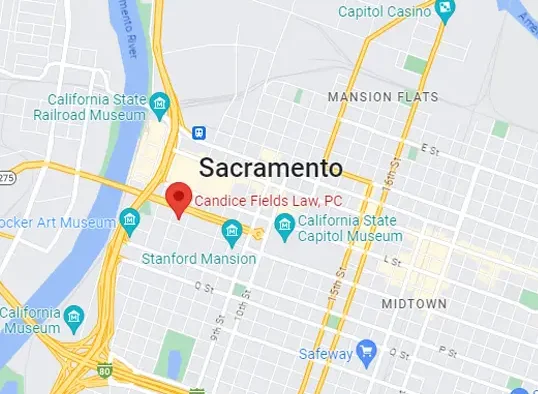The Role of Wobblettes and Wobblers in California Wildlife Law

The Role of Wobblettes and Wobblers in California Wildlife Law
In the nuanced world of legal classifications, the concepts of "wobblettes" and "wobblers" play a crucial role, especially in the context of California's wildlife law. These terms represent an adaptable approach to charging and penalizing Fish and Game Code violations, offering a more tailored response to various offenses. At Candice Fields Law, P.C., we advocate for a judicial system that recognizes the importance of flexibility in environmental conservation and wildlife protection.
What Are Wobblettes and Wobblers?
"Wobblettes" are violations that can be charged as either misdemeanors or infractions, providing a pathway for less severe penalties for minor offenses. "Wobblers," conversely, can fluctuate between being charged as a felony or a misdemeanor, allowing the legal system to impose stricter penalties for more severe violations. The strategic employment of these classifications enables a more equitable legal process, ensuring that the punishment accurately reflects the violation's nature.
Examples of Wobblers in Hunting and Fishing
Below are examples that illustrate how wobblettes and wobblers could ideally function within California's hunting and fishing regulations:
- Illegal Take of Wildlife: Depending on the species involved and the circumstances of the offense (such as endangered vs. non-endangered species, quantity taken, and method of take), this violation can be charged as either a misdemeanor or a felony. For example, illegally hunting a protected species might be considered a felony due to the significant impact on wildlife conservation. In contrast, a lesser offense involving a common species could be charged as a misdemeanor.
- Trespassing to Hunt or Fish: Trespassing for hunting or fishing can range from a misdemeanor to a felony, depending on factors such as the presence of posted no-trespassing signs, prior warnings, and whether the trespass resulted in significant damage to property or wildlife habitat.
Examples of Wobblettes in Hunting and Fishing:
- Fishing Without a License: A first-time fishing offense without a valid license could be treated as an infraction (similar to a traffic violation), carrying a fine but no criminal record. Repeat offenses or circumstances involving additional violations (e.g., fishing in a protected area without a license) might escalate the charge to a misdemeanor.
- Exceeding Bag Limits: Minor overages in bag limits (e.g., catching one or two fish over the limit) could be classified as infractions and be subject to fines. More significant overages or repeated offenses could warrant misdemeanor charges, reflecting a greater disregard for conservation laws.
In both examples, the key factor is the legal system's ability to adjust the charge level based on each case's specifics. This flexibility allows prosecutors to consider the offender's intent, the offense's impact on wildlife populations and habitats, and the offender's previous history with similar violations. By employing wobblettes and wobblers, California's legal framework can more accurately impose fair, proportional, and effective penalties in promoting conservation and responsible use of natural resources.

The Current State of California Wildlife Law
The current state of California wildlife law is a complex framework designed to balance the protection of the state's diverse ecosystems with the interests of various stakeholders, including hunters, anglers, conservationists, and the general public. This legal framework is governed by the California Fish and Game Code, which establishes regulations for conserving, enhancing, and managing wildlife resources. Despite its comprehensive nature, the existing system needs help in addressing the nuances of wildlife violations, particularly regarding the classification and penalization of offenses.
Broad Misdemeanor Classifications
Under the current system, most California Fish and Game Code violations are classified as misdemeanors. This broad categorization encompasses a wide range of offenses, from minor infractions, such as fishing without a license or slightly exceeding bag limits, to severe violations, like poaching protected species or illegal trafficking of wildlife products. The misdemeanor classification means that individuals charged with these offenses can face significant penalties, including fines, probation, and even jail time.
Challenges and Criticisms
One of the primary criticisms of the current approach is its need for more flexibility in distinguishing between the severity of different violations. Minor offenses are often treated with the same level of seriousness as actions that substantially negatively impact wildlife conservation. This one-size-fits-all strategy can result in disproportionately harsh penalties for relatively minor infractions while not sufficiently deterring more egregious violations.
Moreover, the current system does not fully leverage the potential of "wobblettes" and "wobblers" to tailor penalties to the specifics of each case. While recent changes have introduced some flexibility for commercial fishing violations, similar adaptability has yet to be widely implemented for other wildlife offenses. This limited use of flexible legal classifications can hinder efforts to achieve a more balanced and effective approach to wildlife law enforcement.
The Need for Reform
There is a growing consensus among legal professionals, conservationists, and stakeholders that reform is needed to better align California's wildlife laws with the principles of fairness, proportionality, and conservation effectiveness. Key areas of focus include:
- Expanding the Use of Wobblettes and Wobblers: By allowing more offenses to be charged with varying degrees of severity, the legal system can more accurately reflect the nature of each violation and its impact on wildlife conservation.
- Enhancing Penalties for Serious Violations: To more effectively deter egregious offenses, there is a need to ensure that serious violations carry penalties that are commensurate with their impact on wildlife and ecosystems.
- Promoting Education and Compliance: Alongside legal reforms, efforts must be enhanced to educate the public about wildlife laws and promote voluntary compliance, reducing the need for enforcement actions.
Being charged with a wildlife crime can be a daunting experience, given the complexity of environmental laws and the potential consequences of such charges. Wildlife crimes can range from illegal hunting and fishing to trafficking in protected species. If you find yourself in this situation, it's crucial to understand the steps you should take to navigate the legal process effectively. Here’s a guide on what to do if you're charged with a wildlife crime:
What To Do If You're Charged With a Wildlife Crime
1. Stay Calm and Compliant
First and foremost, remain calm and cooperative during any interaction with law enforcement or wildlife officials. Resisting arrest or failing to comply with lawful orders can exacerbate your situation, leading to additional charges. Remember, anything you say can be used against you in court, so you should exercise your right to remain silent beyond providing your basic identification information.
2. Exercise Your Right to Remain Silent
You have the right to remain silent, and it’s often in your best interest to use it. Politely inform the officers that you wish to speak to an attorney before answering any questions about the allegations against you. This helps ensure you don’t inadvertently provide information that could harm your defense.
3. Seek Legal Representation Immediately
Contact a criminal defense attorney experienced in wildlife law as soon as possible. An attorney who understands the nuances of environmental and wildlife regulations will be crucial in developing an effective defense strategy. They can also handle communications with law enforcement on your behalf, ensuring your rights are protected throughout the legal process.
4. Document Everything
If possible, document all interactions with law enforcement officials and any circumstances surrounding your case, including dates, times, locations, and the names of any witnesses. This information can be invaluable to your defense attorney in building your case.
5. Understand the Charges
Work with your attorney to fully understand the charges against you, including the laws allegedly violated and the potential penalties if convicted. Knowledge of the charges will help you make informed decisions about your defense.
6. Comply with All Legal Requirements
Follow any legal requirements or court orders associated with your case, such as appearing on designated dates or complying with pre-trial conditions. Failure to comply can result in additional penalties or charges.
7. Explore Defense Strategies
Discuss possible defense strategies with your attorney. Depending on the specifics of your case, defenses might include challenging the legality of evidence, arguing for the necessity of your actions, or disputing the facts presented by the prosecution. An experienced attorney can advise on the best approach based on the circumstances of your case.
8. Prepare for Court
Work closely with your attorney to prepare your case for court if it goes to trial. This may include gathering evidence, identifying witnesses, and developing a clear and persuasive argument in your defense. Your attorney can guide you through this process and represent you in court.
9. Consider Negotiation or Plea Agreements
In some cases, negotiating a plea agreement with the prosecution may be in your best interest, resulting in reduced charges or penalties. Your attorney can negotiate on your behalf and help you evaluate whether a plea deal is a favorable option.
Need Legal Help? Contact Us Now.
Facing wildlife crime charges? Don't navigate this complex legal challenge alone. Candice Fields Law, P.C. has experience in environmental and wildlife law, offering defense strategies tailored to your unique situation. Protect your rights and secure the best possible outcome.





